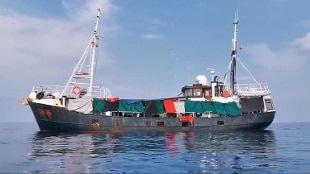- Migrants, new landings on Lampedusa: collapsing hotspots
- Migrants, Count: the EU faces page, but enough with anti-European propaganda
- Migrants in Lampedusa, another 28 landings. Hotspot on tilt
Share
September 22, 2019Automatic redistribution to countries 'willing' to migrants rescued at sea, with sanctions against states called out. Port of landing rotation. Repatriations against Europe, through Frontex, for those who are not entitled to asylum. With these priorities in the suitcase, Luciana Lamorgese will fly to Valletta tomorrow for her first summit as Minister of the Interior, together with colleagues from Malta, France, Germany and Finland (the latter has the rotating presidency of the Union). Meanwhile, the flow to Italy has not stopped: a sailing ship, with 58 Pakistanis on board, has arrived in Crotone after having been intercepted by the Guardia di Finanza.While the Ocean Viking, with its 182 rescue operations (among them also a baby girl of only 8 days), continues to sail without a port with the big sea about twenty miles from Linosa. A new "place of safety" request was sent to Italy and Malta: "Men, women and children are suffering from adverse weather conditions", the appeal from the ship.
However, the new Conte Government - closed the closed port season of Salvini - does not want to give up on the line of rigor and calls for a rotation of the landing ports of the NGO ships and the prior agreement with a suitable number of countries available to welcome the rescued people. France and Germany (to which the majority of NGOs involved in rescues at sea, from Sos Mediterranee to Doctors without Borders, from Sea Watch to Sea Eye belong) are ready to take charge of each of the 25% of landings. It is not enough for Rome and Valletta, especially as the Paris offer would be limited to asylum seekers only.
On the subject in recent days, Conte has pressed French President Emmanuel Macron, who is visiting Rome, while Lamorgese has discussed in Berlin with his German colleague Horst Seehofer. A positive impulse would come from the increase in the number of countries available to be part of the automatic allocation mechanism, which would reduce the burden on each of the 'willing': for example, Portugal, Ireland and Luxembourg took part in the latest allocations. It would be to think of incentives to encourage participation and penalties for those who reject quotas (leading Visegrad group).
This last point - Foreign Minister Luigi Di Maio spoke of - does not seem easy to implement. As for the economic migrants, who are the majority of the 6,700 who arrived in Italy this year, Lamorgese will ask for them to be included in the mechanism. More generally, Rome aims to obtain from Brussels that the Commission will assume the burden of repatriation, as the head of state, Sergio Mattarella, has wished in recent days. This is the decisive point for Italy, given that migrants landed on NGO ships are a small minority compared to the total number of arrivals and that only a minority of these are entitled to asylum.
"The redistribution of migrants across Europe - Di Maio writes on Facebook - is the answer we ask as a government and we have been obtaining for a year and a half. The redistribution will have to become automatic, and we are working on this". The Maltese Minister of the Interior, Michael Farrugia, for his part, laments the lack of solidarity on the part of Europe. "Member states - he observed - were ready to support each other when they faced very difficult economic situations". This was not the case for the humanitarian issues of immigration, the minister added, stressing that "if this does not change, I do not see how the immigration issue can ever be resolved".

